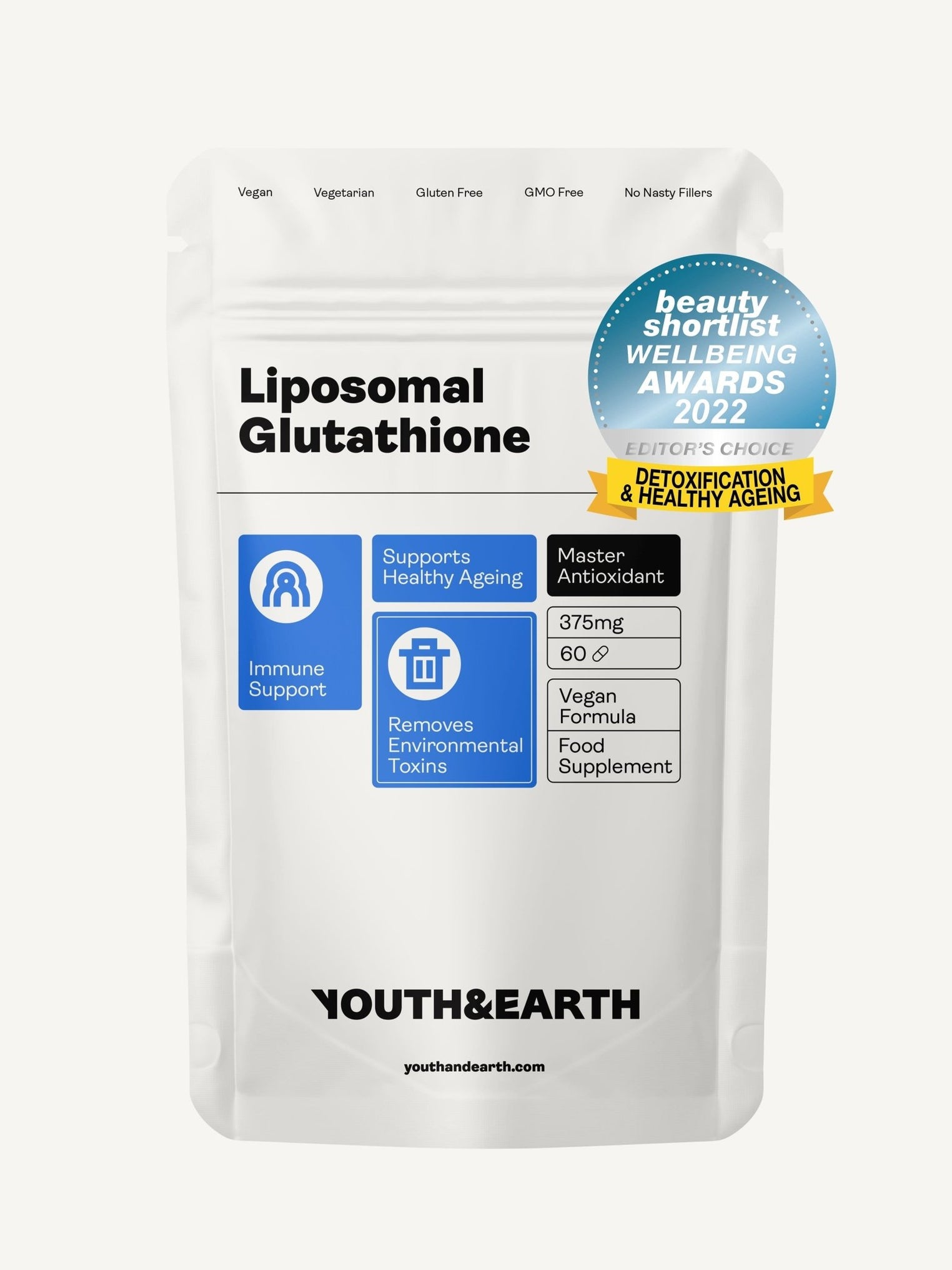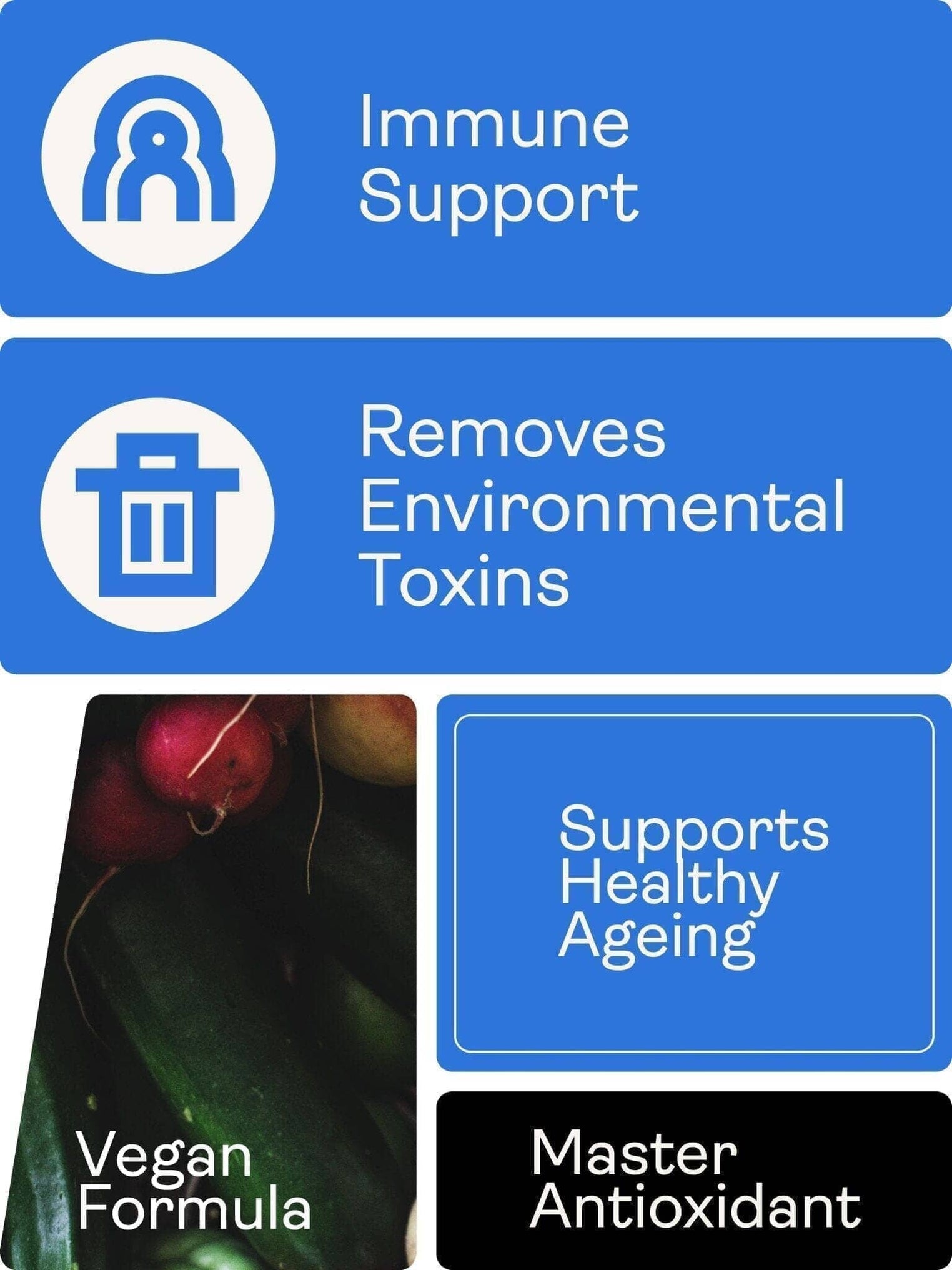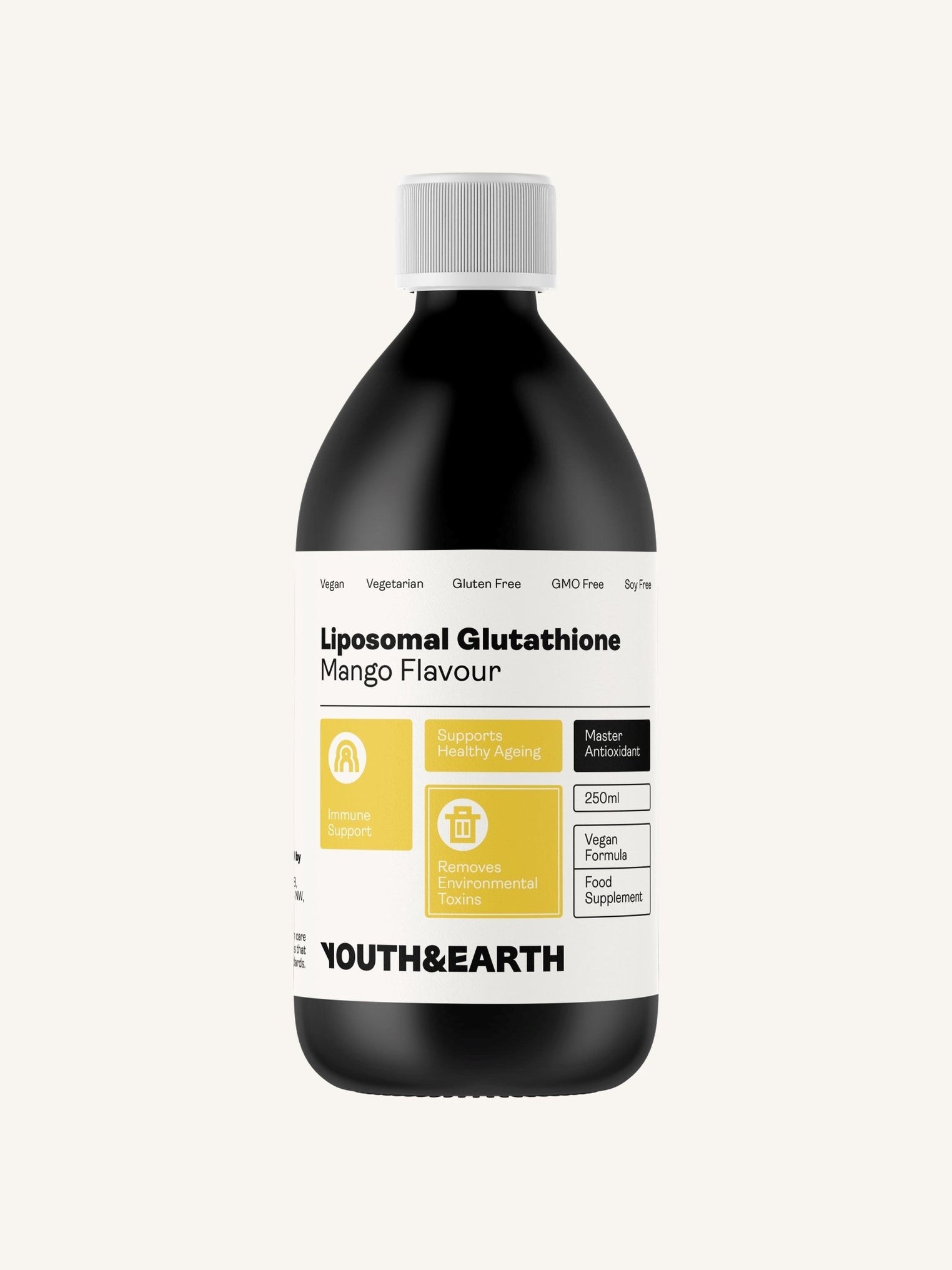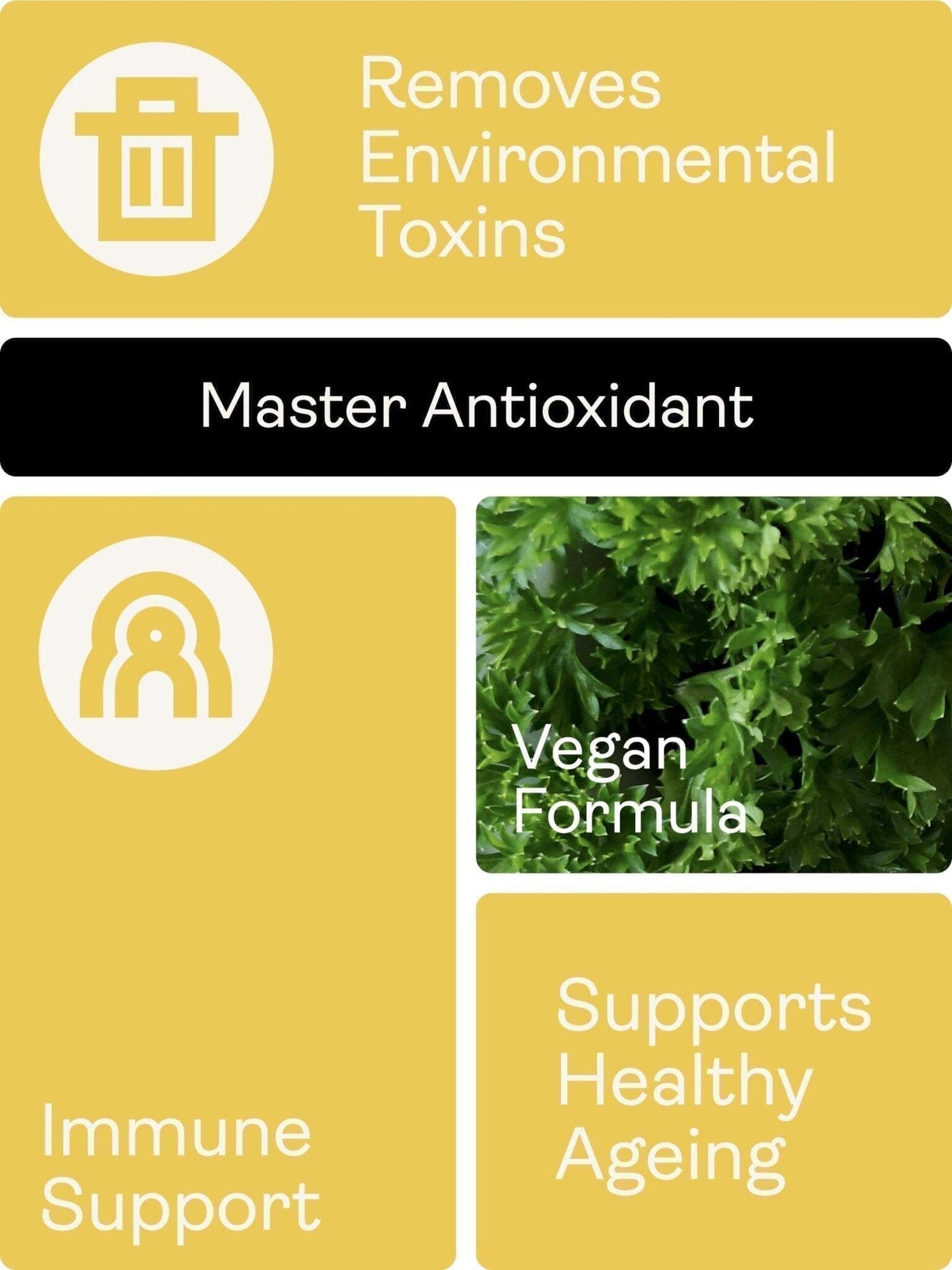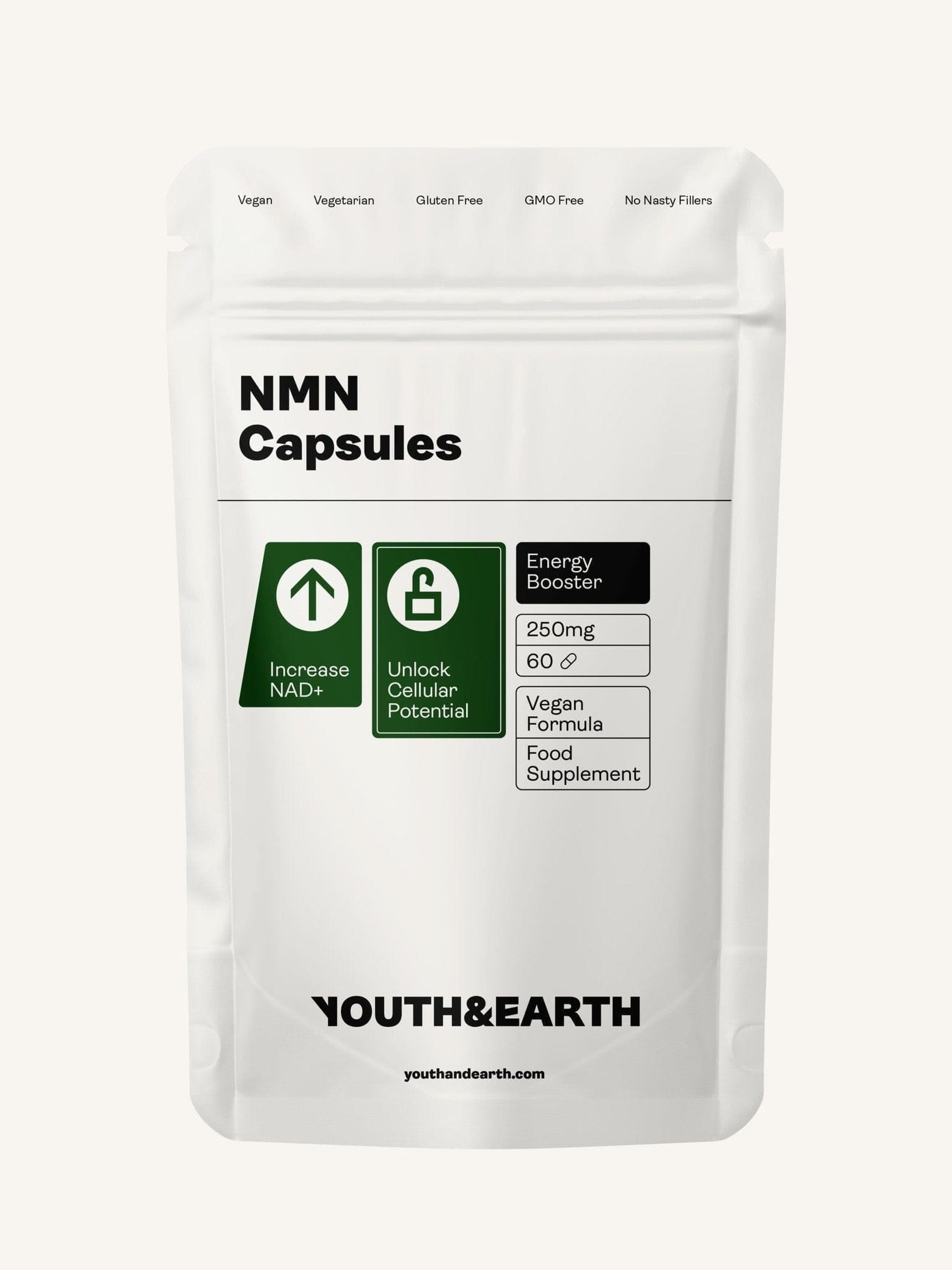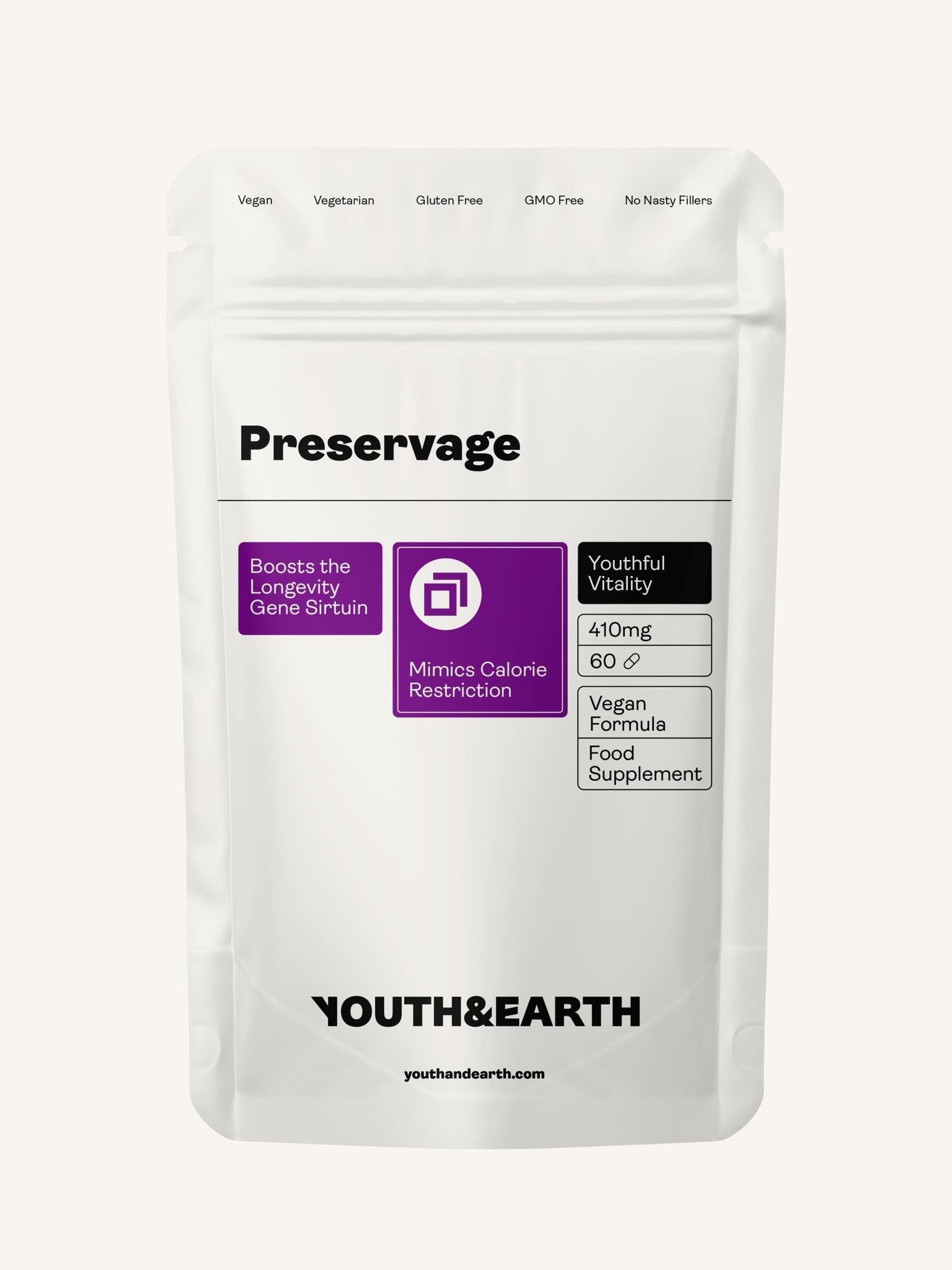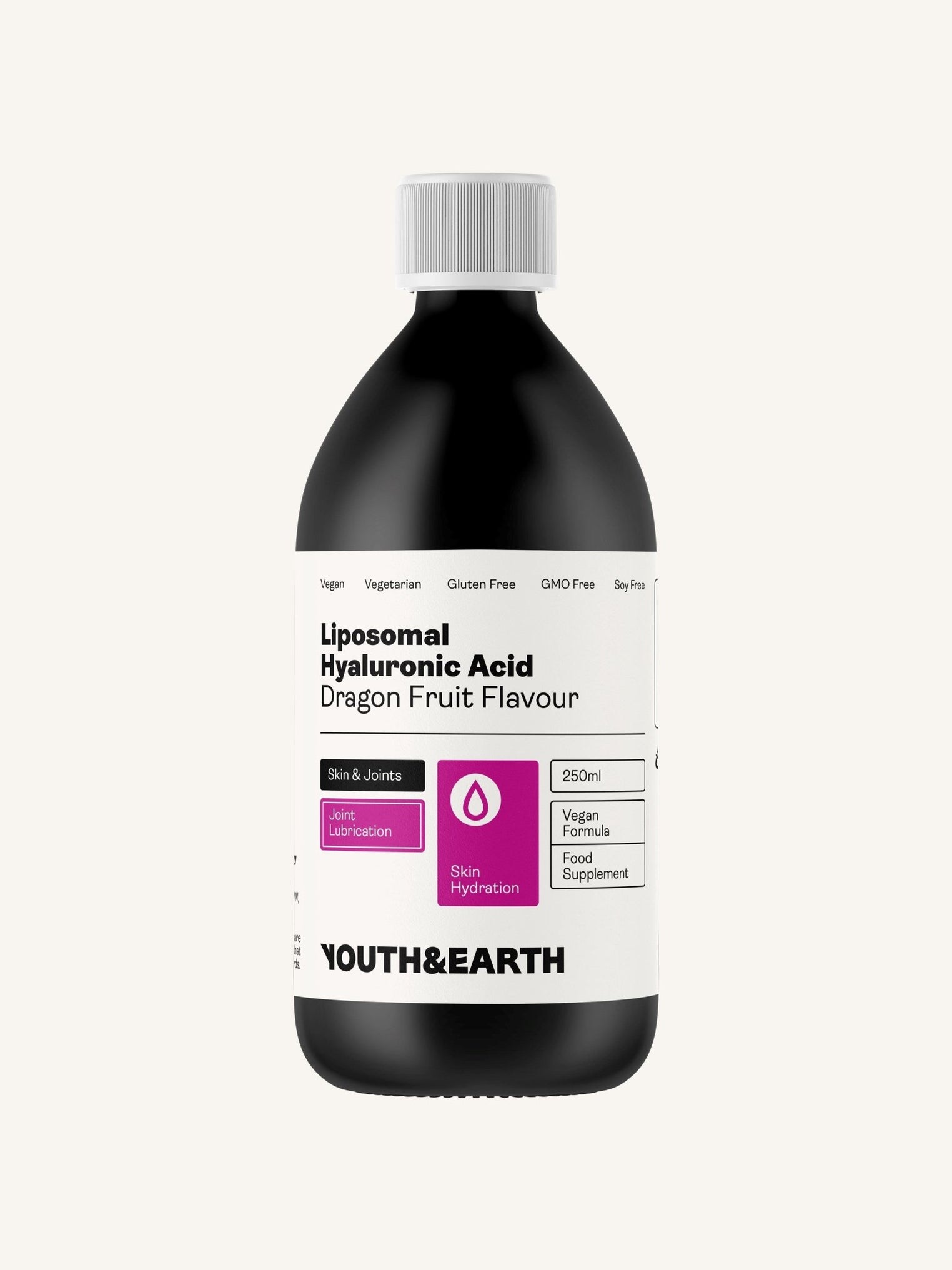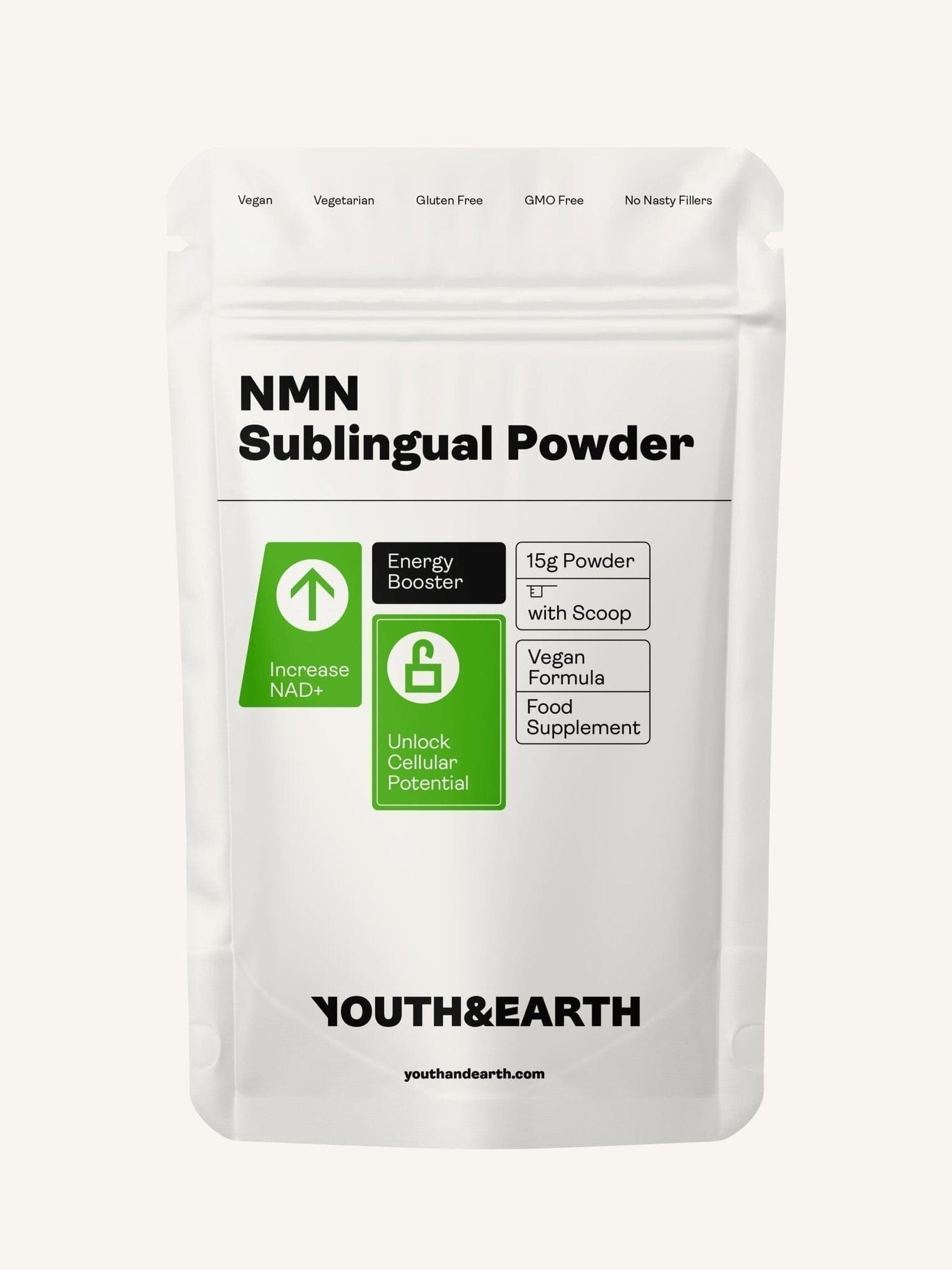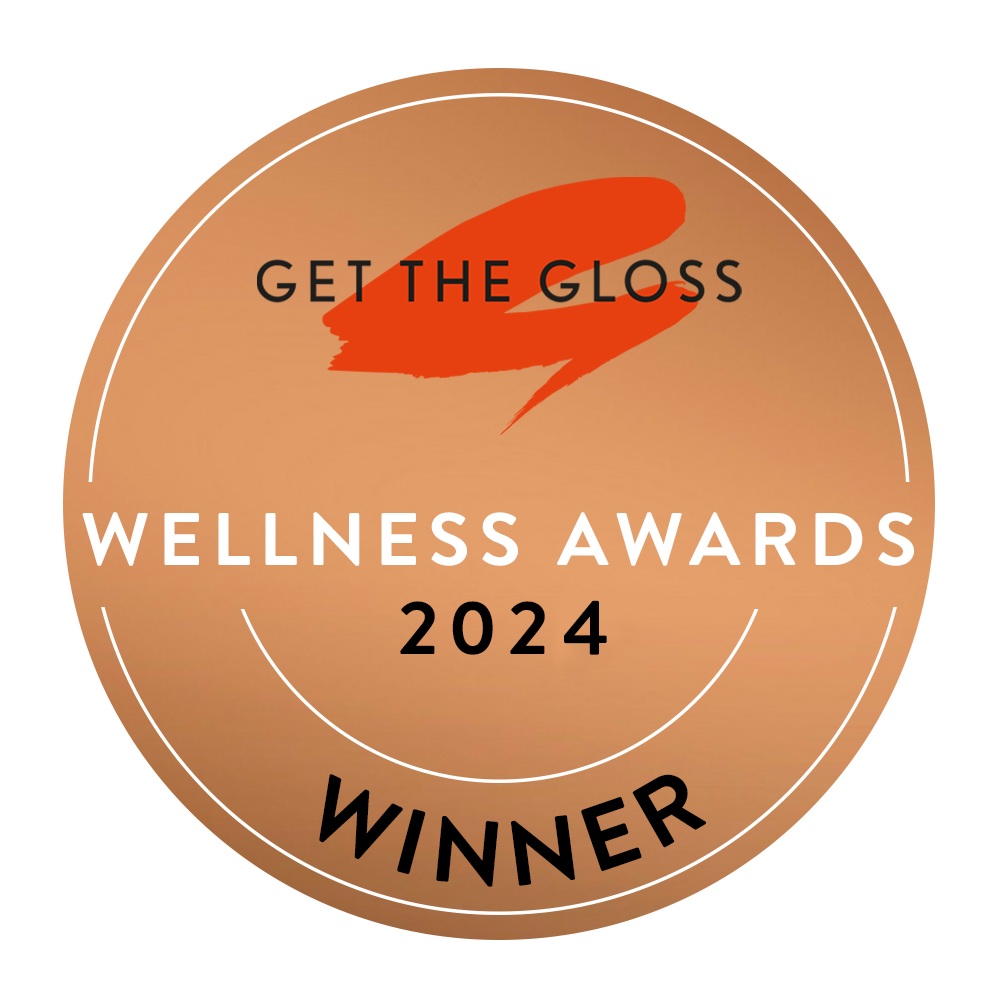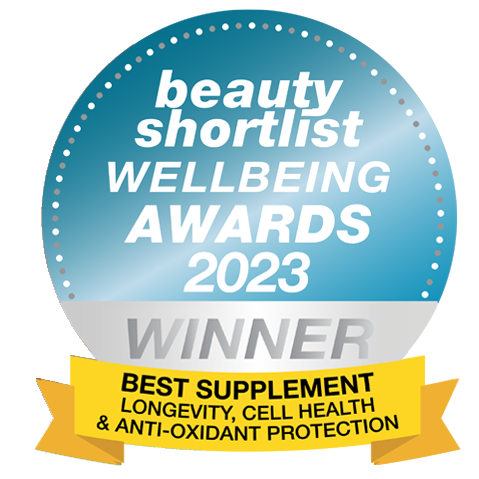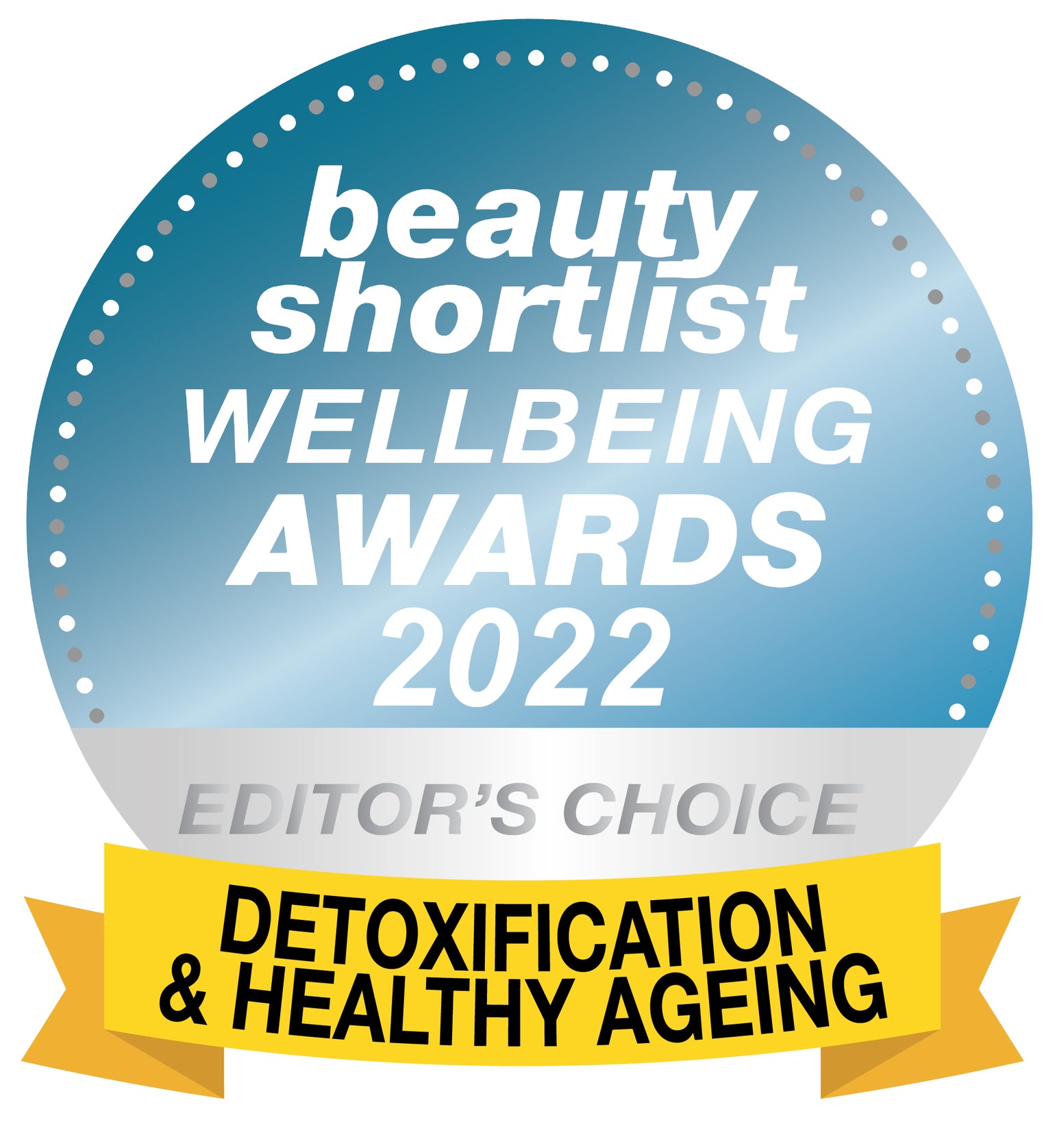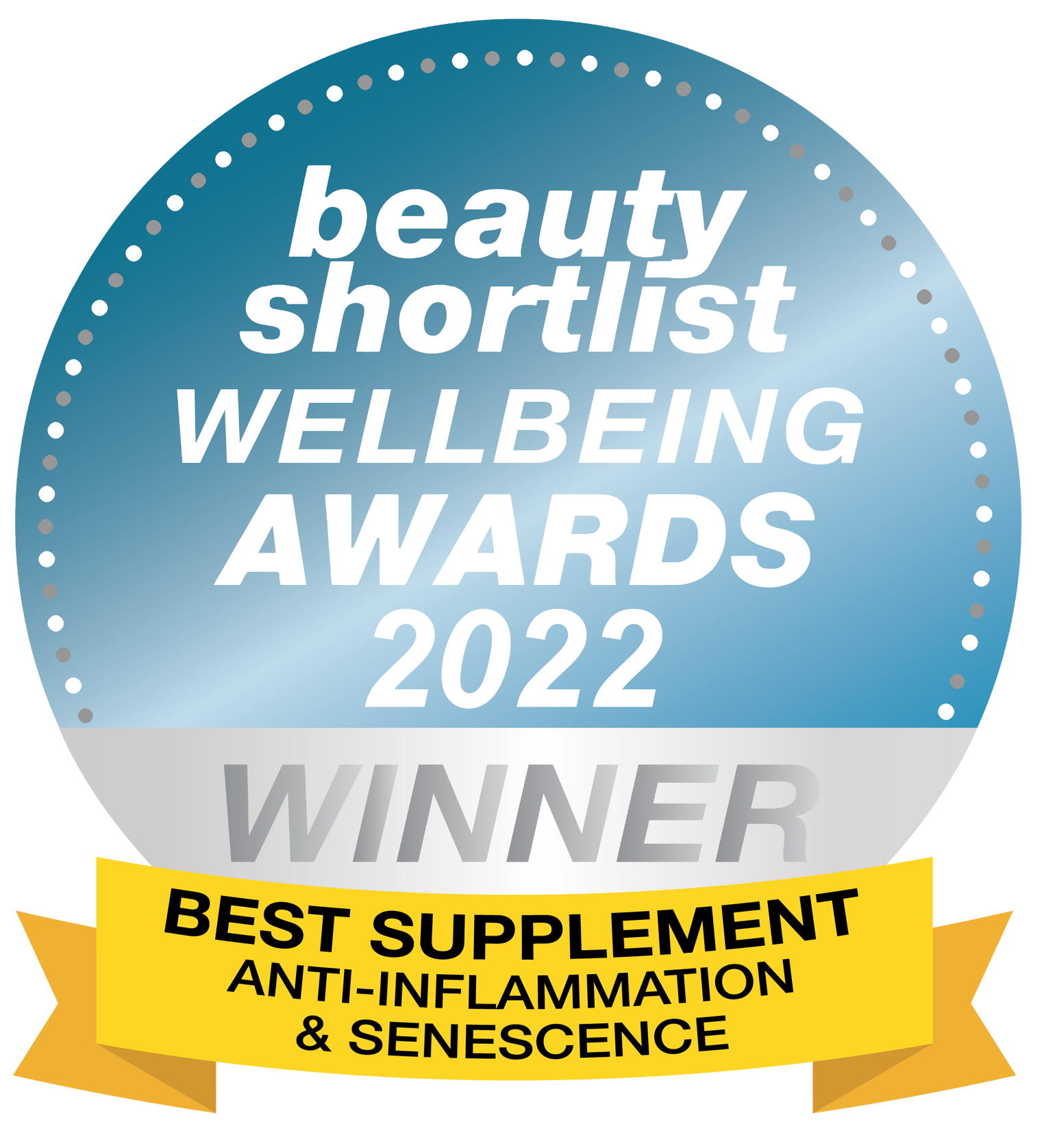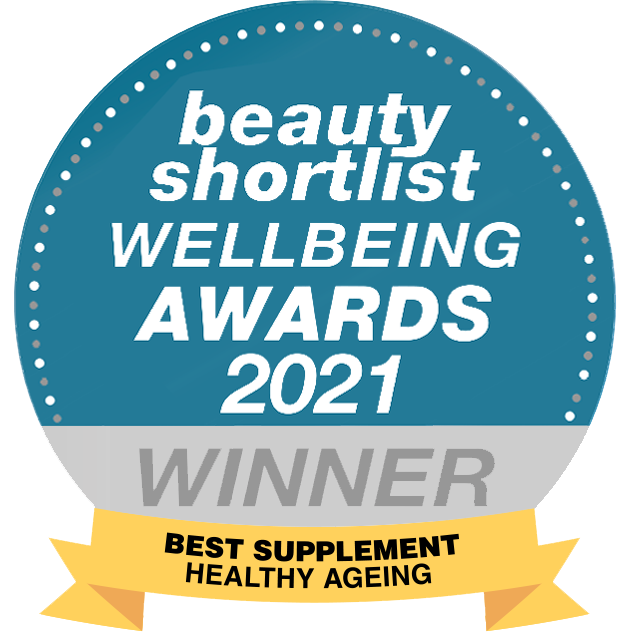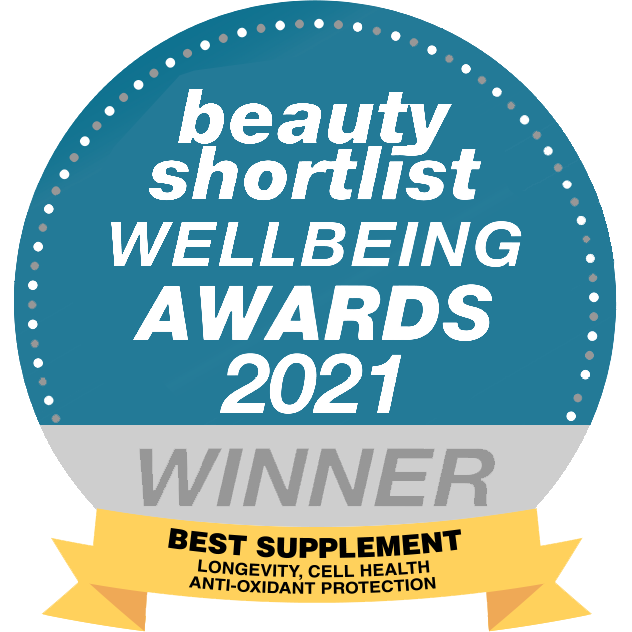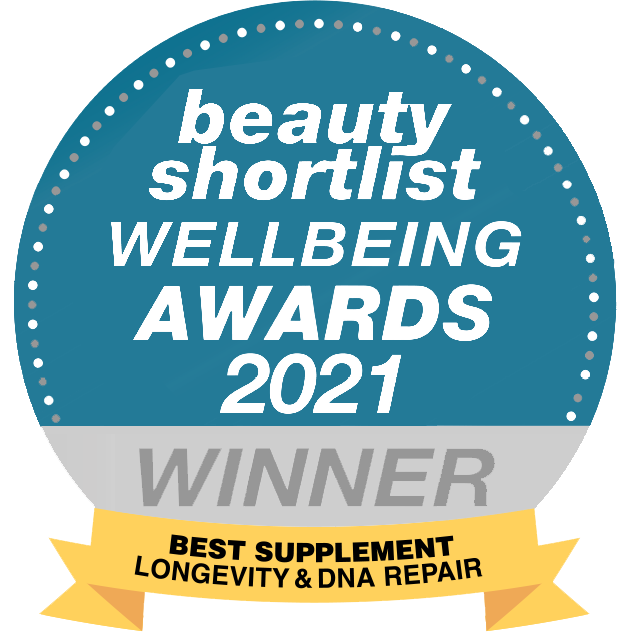O glutatião é um antioxidante essencial que ajuda a proteger as nossas células e desempenha um papel fundamental em muitas das reacções químicas que ocorrem no nosso corpo. Os seus níveis tendem a diminuir à medida que envelhecemos, razão pela qual a toma de suplementos de glutatião pode ser benéfica para a nossa saúde e longevidade.
Com o aumento da esperança média de vida no mundo, está a tornar-se mais evidente a importância da saúde. Infelizmente, uma vida mais longa não significa necessariamente uma vida saudável e é aqui que um estilo de vida equilibrado, repleto de exercício, nutrição adequada e suplementos, desempenha um papel vital.
Sobre a GLUTATIONE
Mas, o que é o glutatião? É um antioxidante crucial que é produzido no fígado e se encontra dentro das células do nosso corpo. É conhecido como o "desintoxicante mestre" e é um dos principais antioxidantes do nosso corpo. É composto pelos três aminoácidos seguintes: cisteína, ácido glutâmico e glicina.
O que são os antioxidantes?
Os antioxidantes são moléculas que protegem as nossas células dos danos causados por moléculas instáveis chamadas radicais livres. Em suma, estas moléculas instáveis contêm oxigénio e têm um número desigual de electrões. Os electrões vêm em pares e os radicais livres têm um eletrão não emparelhado. Os antioxidantes podem doar um eletrão à molécula, o que os impede de retirar o eletrão das nossas células e tecidos, numa tentativa de trazer estabilidade.
O nosso corpo tem um equilíbrio delicado entre os radicais livres e os antioxidantes para impedir que os radicais livres causem estragos no nosso corpo. Muitos dos sinais de envelhecimento, como as rídulas, as rugas e os danos na pele, resultam dos danos causados pelos radicais livres. Além disso, a maioria das doenças e condições crónicas está associada à destruição causada pelos radicais livres que não são controlados pelos antioxidantes, conhecida como stress oxidativo.
Se quiser saber mais sobre outros antioxidantes, leia: Berberina, o super antioxidante e Por que os polifenóis são bons para você.
Benefícios da GLUTATIONA
O glutatião é uma molécula essencial para a nossa saúde e bem-estar. Eis alguns dos seus benefícios.
-
Protege as nossas células e o ADN dos danos causados pelo stress oxidativo e pelos radicais livres.
-
Ajuda a otimizar e a manter o nosso sistema imunitário.
-
Desempenha um papel importante ao ajudar o nosso corpo a desintoxicar-se de substâncias como metais pesados e outras toxinas.
-
Protege e ajuda a central de energia das nossas células (as mitocôndrias) a produzir energia.
O GLUTATIÃO É ANTI-ENVELHECIMENTO?
Sim, porque o glutatião é um antioxidante tão importante, é anti-envelhecimento e pode desempenhar um papel importante para nos ajudar a sentir e parecer mais jovens durante mais tempo. Para além de proteger as nossas células, o seu papel na desintoxicação evita a acumulação de toxinas que podem contribuir para o stress oxidativo e os danos no nosso organismo.
À medida que envelhecemos, os seus níveis diminuem naturalmente no nosso corpo. Muitos dos sinais comuns do envelhecimento e das doenças crónicas estão associados à diminuição dos níveis de glutationa. Ao suplementar com glutationa e seguir práticas de estilo de vida saudáveis que podem ajudar os nossos níveis de glutationa, podemos potencialmente retardar o envelhecimento do nosso corpo.
Para mais informações sobre práticas de estilo de vida saudável que retardam o envelhecimento, leia:
Lições das Zonas Azuis - Sinta-se mais jovem por mais tempo.
COMO É QUE O GLUTATIÃO NOS PODE AJUDAR A VIVER MAIS TEMPO?
A glutationa tem sido utilizada com eficácia numa várias doenças , incluindo Parkinson, fibrose cística, doença pulmonar obstrutiva crónica (DPOC) e diabetes não controlada. Muitas dessas condições crónicas podem não só encurtar a nossa expectativa de vida, mas também diminuir a nossa qualidade de vida.
Aqui estão algumas das formas como o glutatião pode ajudar a aliviar e prevenir algumas destas condições:
Diminui o stress oxidativo
O stress oxidativo ocorre quando o número de radicais livres ultrapassa o número de antioxidantes no nosso organismo. Como resultado, os radicais livres começam a danificar o ADN, os tecidos adiposos e as proteínas das nossas células, o que, com o tempo, se pensa que pode levar a uma série de doenças relacionadas com o estilo de vida, como a diabetes, doenças associadas à inflamação, hipertensão arterial, cancro e outras.
Numa revisão sobre o papel da glutationa na progressão do cancro e naquimiorresistência, descobriu-se que a deficiência de glutationa leva ao aumento dos níveis de stress oxidativo, que está implicado na progressão do cancro. Além disso, continuou dizendo que o aumento dos níveis de glutationa aumentava a capacidade antioxidante, o que pode proteger-nos do cancro.
Pode minimizar os danos celulares na doença hepática gorda alcoólica e não alcoólica
A doença hepática gordurosa não alcoólica (NAFLD) é um problema de saúde crónico em que se acumula demasiada gordura à volta do fígado, causando inflamação no órgão.
Um estudo sobre o tratamento de doenças hepáticas gordurosas crónicas demonstrou que a glutationa, administrada em doses elevadas, melhorou os resultados de alguns exames ao fígado, mesmo vários meses após o tratamento.
Um segundo estudomostrou os efeitos positivos do glutatião juntamente com a dieta e o exercício físico em doentes com doença hepática gorda não alcoólica.
Saiba mais sobre a NAFLD em Por que o açúcar faz mal à saúde?
Pode melhorar a resistência à insulina
A Faculdade de Medicina Baylor pesquisou o papel da glutationa no controlo de peso e na resistência à insulina em idosos. A pesquisa mostrou que níveis baixos de glutationa significavam que o corpo era menos eficiente na queima de gordura e mais suscetível ao armazenamento de gordura. Ao adicionar cisteína e glicina à dieta dos participantes idosos, os níveis de glutationa aumentaram e a queima de gordura melhorou em apenas 14 dias.
Pode aliviar a psoríase
A psoríase é uma doença autoimune em que as células da pele se acumulam, formando escamas e manchas secas que causam comichão. Um pequeno estudo mostrou que o aumento dos níveis de glutationa, através do consumo oral de proteína de soro de leite, melhorou a psoríase sem qualquer tratamento adicional.
Pode melhorar a mobilidade em pessoas com doença arterial periférica
A doença arterial periférica (DAP) é causada por uma acumulação de placas nos vasos sanguíneos das pernas e dos pés e por um estreitamento desses vasos sanguíneos. É frequentemente encontrada em pessoas que sofrem de diabetes tipo 2 e que tendem a ter colesterol elevado e estão em risco de doença cardíaca. A doença arterial periférica pode causar dores nos pés e nas panturrilhas ao caminhar.
Um estudo demonstrou que a glutationa melhorou a circulação dos participantes, permitindo-lhes caminhar sem dor por distâncias mais longas.
Pode ajudar o organismo a combater doenças auto-imunes
A inflamação crónica causada por doenças autoimunes, como o lúpus, pode aumentar o stress oxidativo. Essas doenças atacam as mitocôndrias de células específicas. Um estudo demonstrou que a glutationa protege as mitocôndrias celulares, reduzindo o stress oxidativo.
Pode aliviar os sintomas da doença de Parkinson
Outro estudo demonstrou que o glutatião teve efeitos positivos nos sintomas de tremor e, embora seja necessária mais investigação, sugere que o glutatião pode melhorar a qualidade de vida das pessoas que sofrem de Parkinson.
Pode diminuir os danos causados por uma diabetes não controlada
Um estudo aprovado pelo conselho de revisão institucional para estudos em seres humanos da Baylor College of Medicine apresentou os seguintes resultados: A adição de cisteína e glicina às suas dietas aumentou os níveis deficientes de glutationa em pessoas com diabetes não controlada. Também reduziu os danos causados pelo stress oxidativo, independentemente dos seus altos níveis de açúcar.
Pode atenuar os sintomas de doenças respiratórias
N-acetilcisteína é um derivado do glutatião e é um medicamento utilizado para tratar doenças como a fibrose cística, a sobredosagem de paracetamol e a asma. Também reduz a inflamação, pelo que o glutatião tem o potencial de ajudar a diminuir os sintomas das condições respiratórias.
GLUTATIÃO LIPOSSÓMICO
Youth & Earth um Glutationa Lipossomal que oferece uma biodisponibilidade sem precedentes. É 100 vezes mais eficaz do que os suplementos de glutationa padrão, que são ineficazes, pois a glutationa não consegue entrar nas células.
É um ótimo começo para um estilo de vida mais saudável. Experimente o nosso poderoso produto antienvelhecimento
Glutationa.
QUE ALIMENTOS SÃO RICOS EM GLUTATIÃO?
O nosso corpo não parece absorver bem o glutatião a partir de fontes alimentares, no entanto, o consumo de alimentos ricos em aminoácidos e enxofre pode ajudar a aumentar os níveis de glutatião.
Estes incluem carnes não processadas, ovos, vegetais como alho, legumes, brócolos, espargos, espinafres e frutas como nozes e abacates.
Existem muitos outros exemplos de alimentos que aumentam o glutatião. Por exemplo, o consumo diário de 83 gramas de amêndoas aumenta o glutatião nos fumadores em 16% e diminui os danos no ADN em 29%.
COMO AUMENTAR NATURALMENTE OS SEUS NÍVEIS DE GLUTATIÃO?
Comer alimentos ricos em enxofre
O enxofre é encontrado em proteínas alimentares, como carne bovina, peixe e aves. No entanto, também pode ser encontrado em vegetais do género Allium e crucíferos. O enxofre demonstrou ser necessário para a síntese de glutationa. Os vegetais do género Allium demonstraram aumentar os níveis de glutationa devido aos seus compostos, enquanto vegetais ricos em enxofre, como couves-de-bruxelas e brócolos, parecem aumentar os níveis de glutationa aoreduzir o stress oxidativo.
Suplemento de vitamina C
Pesquisadores descobriram que a vitamina C pode poupar os níveis de glutationa ao atacar primeiro os radicais livres. Eles foram ainda mais longe e demonstraram que a vitamina C ajuda a processar a glutationa, convertendo-a de volta à sua forma ativa. Outras pesquisas mostraram que a suplementação com vitamina C aumenta os níveis de glutationa nos glóbulos vermelhos e brancos. No entanto, como esses estudos foram realizados com suplementação, são necessárias mais pesquisas para determinar se os níveis de glutationa podem ser aumentados com o consumo de alimentos ricos em vitamina C.
Por que não combiná-lo com a vitamina C lipossomal 1000 mg Youth & Earth? A vitamina C lipossomal proporciona ao organismo a mais elevada absorção de vitamina C diretamente na corrente sanguínea.
Quer saber o que significa «lipossomal»? Leia: O que são suplementos lipossomais e como funcionam?
Experimente tomar um suplemento de cardo mariano
O cardo mariano, também chamado silimarina, é bem conhecido pelas suas propriedades antioxidantes e anti-inflamatórias. Estudos em tubo de ensaio demonstraram que a silimarina aumenta os níveis de glutationa e diminui a sua depleção.
As nossas cápsulas Releaf são a combinação perfeita de berberina, PQQ e silimarina. Quando combinada com a berberina, a silimarina demonstrou melhorar a saúde cardiometabólica.
Suplemento com curcumina
Estudos em tubo de ensaio demonstraram que a curcumina pode aumentar os níveis de glutationa. Além disso, os investigadores concluíram que a curcumina pode melhorar a atividade das enzimas da glutationa, ao mesmo tempo que ajuda a restaurar os níveis de glutationa.
As nossas Preservage otimizam a absorção da curcumina (200%), permitindo que o seu corpo experimente os seus benefícios naturais aprimorados.
Manter um ciclo de sono saudável e uma rotina de exercício equilibrada
Um sono adequado é essencial para a longevidade e a investigação demonstrou que a falta crónica de sono pode diminuir os níveis de glutatião.
A investigação mostra que uma combinação de exercícios com pesos e cardiovasculares apresenta maiores aumentos nos níveis de glutatião do que apenas o treino cardio ou com pesos. Além disso, foi demonstrado que o treino excessivo sem uma nutrição adequada diminui os níveis de glutatião.
Beber álcool com moderação
O álcool é bem conhecido pelos danos que causa ao fígado, mas os danos aos pulmões são um efeito muito menos conhecido. As pequenas vias respiratórias dos pulmões precisam de glutationa para funcionar corretamente. A depleção de glutationa em alcoólatras é provavelmente causada pelo stress oxidativo resultante do abuso prolongado de álcool. Pesquisas mostram uma redução de 80% a 90% nos níveis de glutationa nos pulmões de pessoas que abusam regularmente do consumo de álcool.
EFEITOS SECUNDÁRIOS DO GLUTATIÃO
Os alimentos ricos em glutatião não apresentam quaisquer riscos para a saúde. No entanto, a toma de suplementos pode não ser adequada para toda a gente. Algumas pessoas podem ter problemas digestivos quando tomam glutatião e a utilização a longo prazo tem sido associada a uma diminuição dos níveis de zinco. As pessoas que sofrem de asma também precisam de ter cuidado ao inalar glutatião, caso este desencadeie um ataque.
Recomendamos que consulte o seu profissional de saúde se tiver quaisquer preocupações, condições de saúde crónicas ou estiver a tomar medicação crónica.
Linhas finais
O glutatião é um poderoso antioxidante que se encontra no interior das células do nosso corpo e é essencial para combater os radicais livres. Muitos factores externos podem diminuir os níveis de glutatião, incluindo o stress, o envelhecimento e o consumo excessivo de álcool.
Aumentar os nossos níveis de glutatião tem uma longa lista de benefícios para a saúde, mas até agora o consumo oral é controverso. A maioria das investigações mostra que o consumo oral não aumenta o glutatião e são poucos os estudos que demonstram a sua eficácia.
Até à data, a glutationa transdérmica e lipossomal proporciona ao organismo os mais elevados níveis de absorção diretamente na corrente sanguínea.
O conteúdo deste artigo tem apenas um objetivo informativo. Não se destina a substituir o aconselhamento, diagnóstico ou tratamento médico profissional. Procure sempre o conselho do seu médico ou prestador de cuidados de saúde antes de iniciar um novo regime ou programa de saúde. Não ignore o aconselhamento médico nem adie a sua procura devido a algo que tenha lido neste sítio ou em qualquer produto Youth & Earth .
















